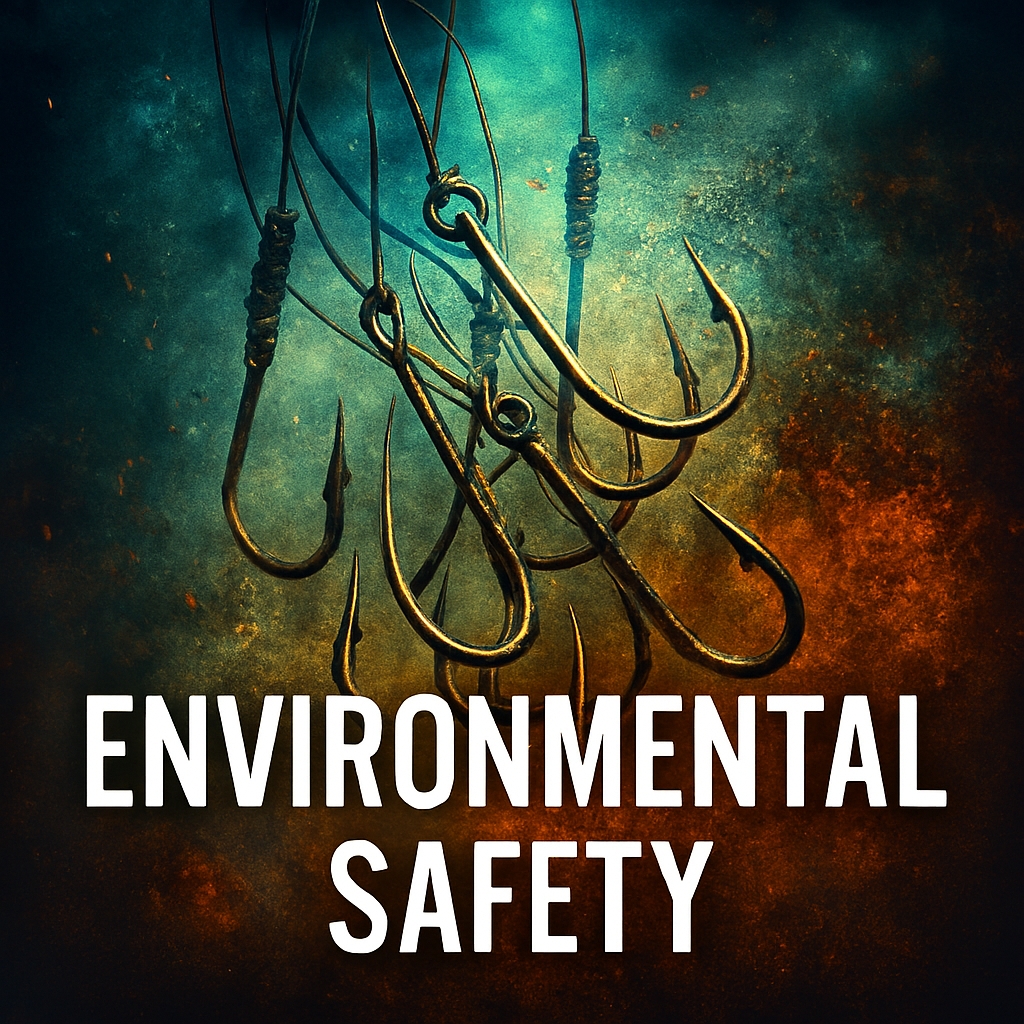Polarizing and Uninformative Environmental News
In today’s fast-paced media landscape, news coverage of environmental issues is often polarising and lacking in depth. Whether by accident or on purpose, this trend can lead to biased or incomplete information that fails to fully inform the public about the urgency and complexity of environmental challenges. This blog post delves into how and why this happens and its implications for public awareness and policy-making.
The Rise of Sensationalism
In an era where news consumption is driven by clicks, views, and shares, sensationalism has become a common tactic to capture audience attention. This approach often leads to headlines that are more focused on eliciting emotional reactions rather than providing nuanced, informative content. Environmental stories, which should be treated with the gravity they deserve, are sometimes presented in a way that oversimplifies complex issues or highlights extreme viewpoints, contributing to a polarized audience.

The Impact of Bias
Bias in environmental reporting can stem from various sources, including political leanings, corporate interests, or the personal beliefs of journalists. When news organizations align with specific agendas, the information presented to the public can be skewed. This bias is an issue & can manifest in several ways.
Selective Reporting
Highlighting certain facts while ignoring others to fit a particular narrative.
Loaded Language
Using words with strong connotations to sway public opinion subtly.
Framing Effects
Presenting information in a way that influences how readers interpret it.
Such bias can create confusion and misinform the public, ultimately hampering efforts to address environmental issues effectively.

Lack of Depth
Environmental issues are inherently complex, involving scientific, economic, and social dimensions. However, news coverage especially environmental news often lacks the depth required to convey these complexities. Short articles and sound bites may fail to provide the necessary context, leaving readers with a superficial understanding of critical issues such as climate change, biodiversity loss, and pollution.
Consequences of Uninformative News
The consequences of polarizing and uninformative news coverage on environmental issues are significant:
Public Misinformation
Incomplete or biased information can lead to misunderstandings about the severity and causes of environmental problems.
Reduced Engagement
When news is sensationalized or biased, it can alienate certain segments of the population, reducing overall public engagement and support for environmental policies.
Policy Paralysis
Policymakers rely on public support to enact meaningful environmental legislation. Misinformed or polarized publics can lead to a lack of consensus, making it difficult to implement necessary changes.

The Role of Media Literacy
Media literacy is crucial in combating the effects of biased and uninformative news. By teaching individuals to critically evaluate news sources, understand biases, and seek out diverse perspectives, we can foster a more informed and engaged public. Encouraging media literacy helps people discern fact from fiction and promotes a more nuanced understanding of environmental news issues.
Just Because They’re Educated Doesn’t Mean They’re Right
Inviting educated individuals such as doctors or scientists to share their perspectives on environmental issues can lend credibility to news stories. However, it’s important to remember that expertise in one area doesn’t necessarily translate to universal accuracy or truth. Several factors can complicate the reliability of expert opinions. This often happens in environmental news.
Single Perspective
Even well-educated individuals have their own biases and perspectives. Relying on a single expert’s opinion can lead to an incomplete understanding of the issue.
Merit in the Situation
Sometimes, the experts featured in news segments may not have direct experience or expertise in the specific environmental issue being discussed. This can lead to misinformed or irrelevant opinions.

Influence of Sponsorship
There are instances where experts may be influenced by corporate sponsorships or other financial incentives. This can skew their perspectives and introduce bias into their commentary.
It’s crucial for news consumers to critically evaluate the credentials and potential biases of experts, seeking out diverse viewpoints to get a well-rounded understanding of environmental issues.
The Need for Unbiased and Factual News
In a world where the left leans left and the right leans right, the role of the news especially in the understanding of environemntal news this should be to provide unbiased, factual reporting that transcends political divides. The media’s primary responsibility is to inform the public accurately and impartially, enabling individuals to make well-informed decisions based on reality, not ideology.
- Trust in Journalism – For journalism to maintain its credibility, it must be rooted in facts. When news outlets become vehicles for partisan agendas, they erode public trust and contribute to the polarization of society. By focusing on verifiable facts and presenting balanced viewpoints, journalists can uphold the integrity of their profession and foster a more informed citizenry.
- The Role of Objectivity – Objectivity in news reporting means presenting the facts without bias, allowing readers to form their own opinions. It requires journalists to examine all sides of an issue, avoid sensationalism, and resist the influence of political or corporate interests. Objectivity does not mean neutrality; it means fairness and balance in coverage.
- Impact on Democracy – Unbiased news is essential for a healthy democracy. It ensures that citizens have access to accurate information, which is critical for making informed choices at the ballot box. When news is slanted, it distorts public perception and undermines democratic processes. A well-informed electorate is better equipped to hold leaders accountable and engage in constructive debate.
- The Consequences of Bias – Bias in news reporting can lead to a range of negative outcomes, including misinformation, increased polarization, and decreased civic engagement. When the media presents only one side of an issue, it limits the public’s understanding and hinders meaningful dialogue. Balanced reporting, on the other hand, promotes critical thinking and fosters a more inclusive discourse.
- Ethical Standards – Journalists have a moral obligation to adhere to ethical standards that prioritize truth and fairness. This includes fact-checking, avoiding conflicts of interest, and being transparent about sources and methods. Upholding these standards helps ensure that news remains a reliable source of information for the public.
While political biases may exist, the core function of news should be to provide unbiased, factual reporting. By adhering to principles of fairness, accuracy, and objectivity, the media can play a vital role in promoting an informed and engaged society, bridging divides and fostering a more cohesive world.
Moving Forward
To improve the quality of environmental news, both journalists and consumers have a role to play. Journalists should strive for balanced, in-depth reporting that provides context and multiple perspectives. News organizations must prioritize accuracy over sensationalism and consider the long-term impact of their reporting.
Consumers, on the other hand, should seek out reputable news sources, question the information presented to them, and actively look for comprehensive coverage of environmental topics. By doing so, we can create a media landscape that better informs the public and supports effective environmental action.
Conclusion
The trend of polarizing and uninformative news on environmental news issues poses significant challenges to public understanding and policy-making. Whether driven by sensationalism, bias, or a lack of depth, this type of coverage can hinder efforts to address the pressing environmental challenges we face. By fostering media literacy and demanding more balanced, thorough reporting, we can work towards a better-informed public and more effective environmental news solutions.
Join the Discussion
What are your thoughts on the current state of environmental news coverage? How do you think we can achieve more balanced and informative reporting? Is environmental news important? Can environmental news be biased to suit the news network or government in-charge?













Big Businesses Natural Disaster Relief - EcoReef.co
[…] Social ResponsibilityParticipating in disaster relief showcases a company’s commitment to Corporate Social Responsibility , signaling to consumers and stakeholders that the company values human welfare. This enhances the […]